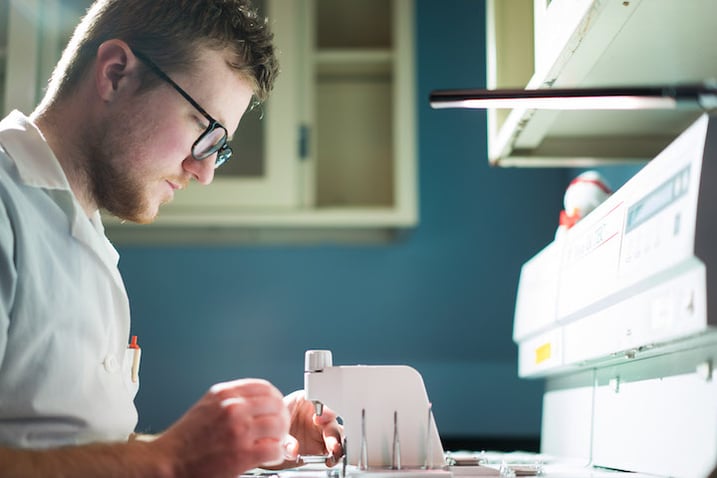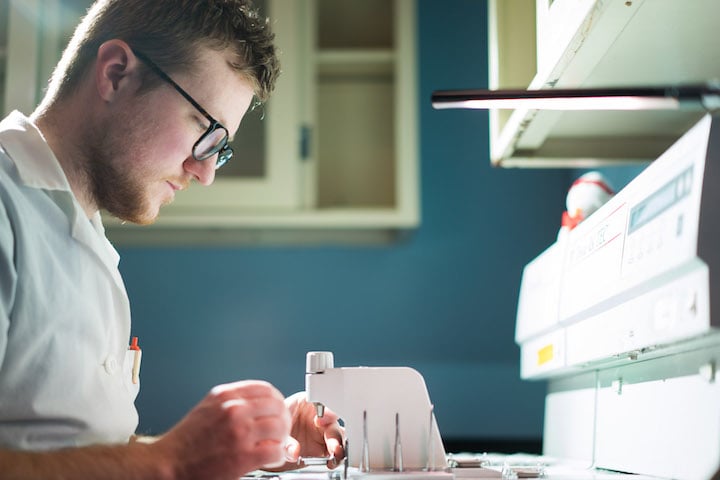 If you’re running a preclinical study that requires histopathology services, you’ll soon discover (if you haven’t already) that high quality histotechnicians play a vital role in making sure your study stays on track. They are responsible for the process of preparing tissues for microscopic examination by a pathologist, who then issues a report on the findings. When high quality slides are delivered to the study pathologist for evaluation, reports can be issued in a timely manner and your study continues to stay on time and on budget.
If you’re running a preclinical study that requires histopathology services, you’ll soon discover (if you haven’t already) that high quality histotechnicians play a vital role in making sure your study stays on track. They are responsible for the process of preparing tissues for microscopic examination by a pathologist, who then issues a report on the findings. When high quality slides are delivered to the study pathologist for evaluation, reports can be issued in a timely manner and your study continues to stay on time and on budget.
Once samples arrive at the histology lab, histotechnicians begin the multi-step process of transforming tissue into information. From gross trimming to embedding, from microtomy to microscopic quality check, skilled histotechs use their unique training and expertise to prepare the superior slides your study demands.
A group of well-trained histotechs will prepare crisply stained, artifact-free slides that give pathologists the best information possible. Every day in the lab, histotechs make dozens of important decisions aimed at ensuring a quality outcome.
Tissue fixation begins at necropsy. In the lab, fixation continues as the first step in tissue processing. Experienced histotechnicians know which processing protocols are appropriate for tissues of various types and sizes, from small biopsies to larger, fattier sections. At embedding, they use their knowledge of gross anatomy to orient processed samples correctly so that even the smallest details of a tissue (like the pars nervosa from a mouse pituitary) are not cut away during the microtomy phase. Among the most important steps in histology is microtomy. Microtomists should be trained to work with tissues from a variety of species – both small and large animal – and are adept at cutting tissue sections free of artifacts, such as wrinkles, air bubbles, thick and thin sections, knife lines, and chatter.
As laboratory professionals, histotechnicians who work in a GLP environment should be familiar with the importance of following SOPs, GLPs, equipment maintenance, and completing all documentation properly.
Over the course of many years, a high quality histotechnician should be cross-trained to perform many if not all the functions in the laboratory, even if it isn’t their primary area of responsibility. Histotechnicians who are able to consistently produce high quality work on time will make the pathologist’s job of evaluating slides easier and more timely while keeping your study running smoothly.

